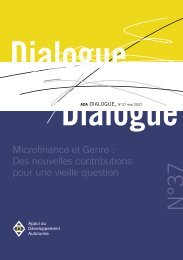Sustainable Microfinance - Balanced Scorecard's added value for ...
Sustainable Microfinance - Balanced Scorecard's added value for ...
Sustainable Microfinance - Balanced Scorecard's added value for ...
Create successful ePaper yourself
Turn your PDF publications into a flip-book with our unique Google optimized e-Paper software.
In 2007, the Dutch Ministry of Economic Affairs, under the management of State<br />
Secretary Frank Heemskerk, appointed The Council <strong>for</strong> <strong>Microfinance</strong>. One of the<br />
members of this Council is Her Royal Highness Princess Maxima of the Netherlands,<br />
who was a member of the UN advisory committee during the year of microcredit<br />
2005.<br />
In October 2007, the Council presented an advisory report to State Secretary<br />
Heemskerk. This report states that microfinance has big potential as stimulator of<br />
entrepreneurship. According to the Council this will have a positive influence on:<br />
1. Economic growth;<br />
2. Integration of disadvantaged groups;<br />
3. Reducing unemployment.<br />
Further the report states that local microfinance initiatives, of which already many<br />
were presents at the time the report was presented, are the source of power when it<br />
comes to using the potential. In order to strengthen these initiatives and to increase<br />
the sustainability, the Council proposed an approach where the local initiatives, which<br />
have direct access to the target groups, are supported by a franchise system. This<br />
enables them to use coaching networks and to have access to simple financings<br />
models (Council <strong>for</strong> microfinance, 2007).<br />
Another statement from the report is that the Netherlands, compared to other<br />
countries in Europe, was behind with stimulating micro entrepreneurs. A couple of<br />
countries (in particular France, Spain, England and Finland) were already using<br />
microfinance <strong>for</strong> several years. The Council stated that the Netherlands could learn<br />
the following lessons from those experiences:<br />
1. Local microfinance initiatives, carried out by people that stand in the middle of<br />
local communities are of indispensable importance;<br />
2. Coaching, both be<strong>for</strong>e and at the beginning of the lifetime of the business, is<br />
next to financing very important;<br />
3. Scale is important <strong>for</strong> sustainability. National coordination under one central<br />
brand can be the key to success;<br />
Elmar Hoogendoorn 4<br />
<strong>Sustainable</strong> <strong>Microfinance</strong>



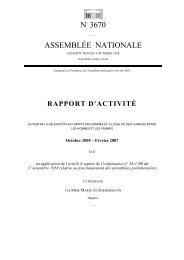
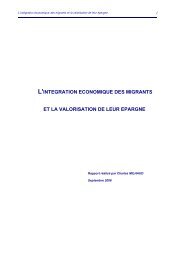
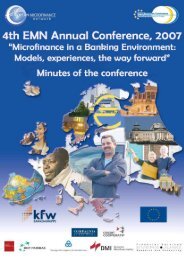
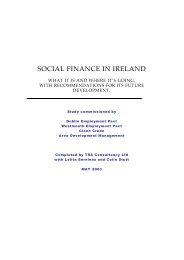
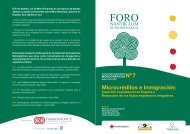
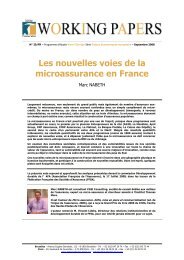
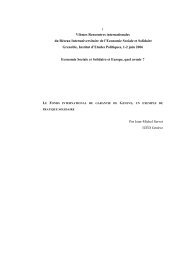
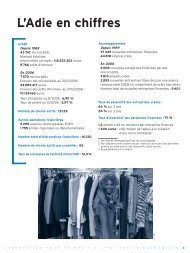
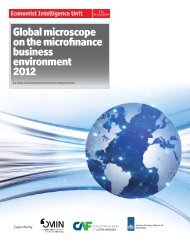
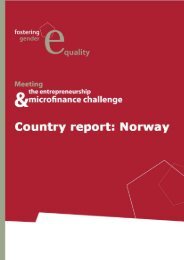
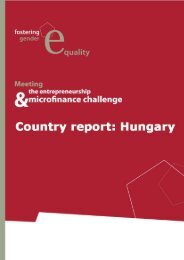
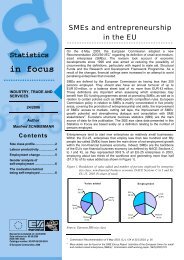
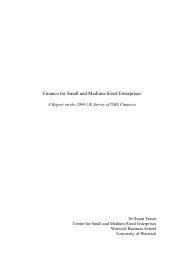
![Joint Report on Social Protection and Social Inclusion [2005]](https://img.yumpu.com/19580638/1/190x132/joint-report-on-social-protection-and-social-inclusion-2005.jpg?quality=85)
